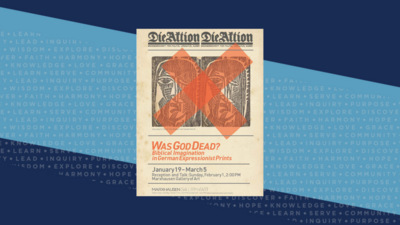Ten Questions to Ask Yourself When Choosing a Major

Choosing the “right” college major can be a daunting task. Lists of all the different program options at each of the different schools you may be considering seem endless, and it is possible that several different options – or none at all – stand out to you. What do you do when you are a prospective college student and have no idea where to start in your search for schools or fields of study? Start by asking yourself these questions, and you may find yourself feeling a bit more knowledgeable.
What does the cost of my desired college education look like?
Let’s start with some logistics. When you begin to consider what your future college education might look like, it is hard to overlook the factor of cost. Up to 80% of college students change their major at least once. While there is nothing wrong with changing your major once or twice – or more! -- there are costs associated with it, especially if you switch to a very different field of study.
Some postsecondary education options are much less expensive than others – these include trade school, apprenticeships and similar fields of study. However, bachelor’s degrees are very feasible for those who desire to follow that route, especially with scholarships and financial aid.
What kind of job prospects do I have in the short- and long-term?
Most students look at their future career in terms of their “end goal.” While this is a great point from which to begin, the time in between one’s undergraduate education and the later stages of one’s career must not be overlooked.
When you set out to choose a major, don’t just consider what your career will look like in a decade, or even two. Imagine yourself in a job you can get a year or two after you graduate college. These roles are no less than the ones you may achieve in the future, but they may help you narrow down your choices for a major.
What do I want my lifestyle to look like?
Another essential part of considering your major and its relation to your future career is your desired lifestyle. If you are a person who prefers to live life in an easygoing, carefree manner, you may not enjoy a job in a high-stress field like law enforcement or surgery. However, if you feel that you prefer being busy or working in a bustling environment, these jobs may be perfect for you.
Also consider work-life balance. Do you want to work a traditional 9-5 job, or do nighttime shifts sound more appealing? Jobs in fields like nursing or aviation may allow you to work shifts that do not align with traditional 9-5 hours. Or you want to create your own work hours – starting your own business, doing freelance work, or working remotely may be the path for you. No matter which major you end up choosing, it is always important to consider what you want your life to look like outside of work.
Is my major going to require graduate school?
For many undergraduate students, their education does not end when they walk across the stage after four years of college. In many professions, a postgraduate degree is encouraged or even required. Graduate degrees can be costly, and even though tuition assistance from one’s employer, scholarships, and student loans can make the process easier, many students still dislike the idea of spending several more years in school.
Those who studied education, the physical sciences, philosophy, various biological sciences, pharmacy, special education, biology, chemistry, physics, or biochemistry are the most likely to hold a graduate degree in their field. On the bright side, master’s degrees lead to a 20% increase in salary when compared with a bachelor’s degree, and a doctorate degree can lead to a 25% or more increase in salary when compared to a master’s degree.
Where does the intersection of my skills and my interests lie?
Ideally, your choice of a college major should lead you to a career that you both excel at and love doing. Consider your passions and your skills or talents. If you always got straight As in your high school history classes but hated every minute of them, history is likely not the right major for you. On the other hand, if painting is your hobby but you believe it should just stay as a hobby, a studio art major may not combine both skills and passions for you.
Of course, you should never give up on something that you love just because your work is not perfect. However, when choosing a college major, you are most likely to find yourself thriving in a field that combines what you are good at with what you love to do. Did you always get good grades in your science classes in high school and check out books on human anatomy from the library because you love to read them? A biology degree could be where you find your calling.
What do I value, and what priorities do I have?
Values are defined as what you judge as important. You might place a high value on family, faith, academics or sports, among other aspects of life. The things you value most take high priority in your life and should also be a factor in your decision regarding a college major or future career. If education and academics are something you value highly, you may be more drawn to pursuing a degree that will require further education. Likewise, if you value community service, sharing the gospel, or making a concrete difference in the lives of others, volunteering or taking a service trip abroad might be something you choose to do during college.
Values are part of what makes us who we are, so it follows that they should play a significant role in one of the most important decisions you will ever make.
With whom do I mostly want to interact in my future career?
Most careers involve at least some form of interaction with others, whether it be in person, over the phone, or on a video call. Think about the groups of people with whom you work best. If you love children, a career in education or childcare might bring you joy. If you have a powerful desire to share the God’s Word with nations all around the globe, missionary opportunities or training related to international relations may be right for you.
Most jobs include interactions with many distinct groups of people; depending on the career, some of these people may not share the same beliefs, values, or priorities as you. College can open your eyes to the world’s wonderful diversity and prepare you to share your gifts with many unique groups of people.
Have I considered all of my options?
Here is where you might need to put some deep thought into your college major decision. While you may feel there is only one defined career path for your skills, this is not the case. There are many jobs that can correlate with unique, niche skill sets. Just because you do not think that your love for medieval history or marine navigation can help you attain a well-paying career does not mean that you will not be able to find a career that is perfect for you.
Some advice: do your research. Network, and talk to people whose interests and skills are similar to yours. Ask lots of questions, and keep in mind that there are always different paths that can lead to a successful career and a fulfilling future.
Why am I considering this path?
After asking yourself all the preceding questions, it is time to bring them all together and ask yourself why you wrote down English, or art or physics on your college application. Is it because you are following a passion? Is it a choice you made in search of fulfilling a specific long-term goal? Or is your college major something that you felt you “had” to choose?
Whatever your response to this question, remember when you considered the intersection of your skills and your passions, and remember that you should not feel as though you must give up on what you love to do or are good at to select a college major.
Most importantly: to which career is God calling me?
As Christians, we know that God calls many different people to all different fields of study. Therefore, my final advice to you is to pray about this decision. Who knows you better than your Heavenly Father? Do not stop praying, asking God for guidance, and spending time in His Word even after you declare a major. College freshman you does not need to determine your entire life plan – the path on which God takes you may surprise you over time, which is something that all of us should keep close in mind.
Learn more about Concordia's available programs of study here.
Related Stories


